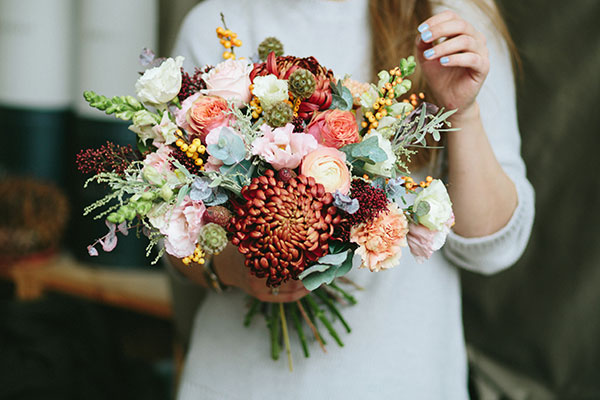
Many people are often willing to spend quite a bit of money on this important day in their lives. Also, it is a career field that allows you to make a meaningful difference in the lives of people you help.
Becoming a wedding planner doesn’t occur overnight. There are many moving parts that go into making a wedding come together. There’s the music, the venue, the caterers and more, all these need special considerations. Many couples looking to get the most out of their wedding with the least amount of hassle. They are going to look to you to help them plan the perfect day.
Stratford Career Institute offers a Wedding Planner Consultant course to get you started in your career.
Before you enroll, here’s a bit more to know about wedding planner education. So what are the 9 steps to a wedding planner education?
1. Attaining A Wedding Planner Education
There is no set ‘education’ for becoming a wedding planner. If you believe you can handle the workload and understand the parts of a wedding, you could open your own wedding planning business today.
To be a successful long-term wedding planner you’re going to need to understand all the different facets of a wedding. To do that, there are a few steps to go through. You will want to master the knowledge needed to be the best wedding planner you can be.
2. Understanding Wedding Customs
Not all religions and groups celebrate a wedding in the same way. A Catholic wedding will be very different from a Jewish wedding, and a Hindu wedding will be different from a Buddhist wedding. Being aware of wedding customs and able to cater to them is very important. Especially for families that are looking to continue traditions in their wedding that are centuries old.
3. Understanding Religions
A good wedding planner should be able to prepare a lovely wedding for someone, no matter what their particular religious beliefs. An education in religions and their wedding customs is an essential part of being able to plan weddings.
This isn’t to say that every wedding you ever plan will be a religious one. But being able to pay proper homage to religion for those who are observant of a religion is an important skill.
4. Learn About Food, Drink, and Cake
Food, drink, and cake are critical parts of the ceremony for many cultures. Many people have an expectation that a wedding reception will have a meal, or at very least enough hors d’ouevres to make a decent meal. For wedding receptions for wealthier clients, an open bar and a decent cake is likely to be an expectation. Understanding the proper mixture of the three, as well as being able to budget them properly, is essential.
5. Educate Yourself on the Subject of Flowers, Bouquets, and Arrangements
Flowers are also an important part of a wedding. Depending on the culture and religion, the bride may be the only one to carry a bouquet, or the entire bridal party may carry flowers. The venue may also need decoration and floral arrangements to liven the place up. It is important that the floral arrangements match with the theme and the colors of the wedding.
6. Wedding Attire, Groomsmen, and the Bridal Party
Understanding the bride and groom’s desires when it comes to their parties is important. Not only will these two groups be near the bride and groom the entire time, but they are also there to provide moral support in what can be a very emotional time. Helping them pick matching outfits and appropriate outfits for the occasion will ensure that the wedding goes smoothly.
7. Photography
Every couple wants to have photographs of their wedding that they can enjoy for years to come. A good wedding planner will have access to a number of photographers who can professionally and discreetly take photographs and video.
8. The Venue
Where to hold a wedding is a question that many couples struggle with. Sometimes, renting certain beautiful venues is prohibitively expensive, while in other cases it will be a matter of practicality, choosing the best venue for the season. It is important that a wedding planner not only have connections to many local venues, but that they work to maintain good relationships with the owners and operators to ensure that the wedding party gets the right venue for their desires and their dream occasion.
9. The Reception and Entertainment
The reception is the party after the wedding, and it is a complex affair. There are seating charts to create, entertainment to arrange, and events to photograph. Learning how to pull off the perfect reception, and doing so on a budget, is an important step for any wedding planner. It is also good for a wedding planner to have a good handle on the local entertainment scene, both live music and DJs who can help to set the mood of the reception and play music for the first dance the bride and groom share.
Some of this knowledge will have to come from local sources, but some information an enterprising wedding planner can learn through courses, such as the online courses at Stratford Career Institute. While no formal educational requirements exist for wedding planners, it is still in your best interest to seek some form of education before embarking on your new career as a wedding planner.
Start Your Wedding Planner Education

Don’t know where to start with your wedding planner education?
Consider taking an introductory distance learning course. Stratford Career Institute offers an affordable, online Wedding Consultant Course.

